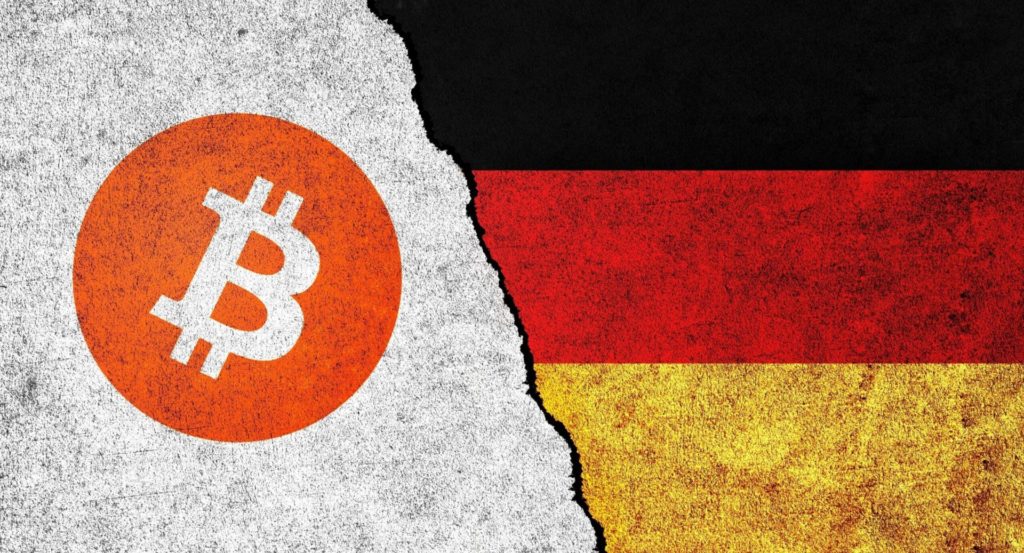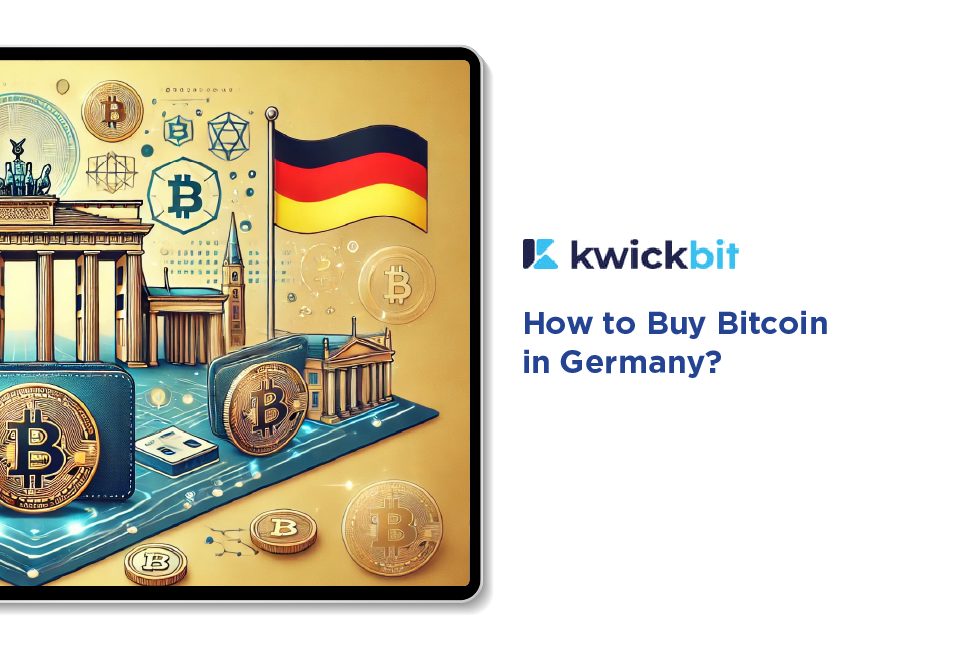Germany has emerged as a global leader in cryptocurrency regulation and adoption. With a solid regulatory framework, a robust crypto community, and a growing interest from businesses and consumers, it’s no surprise that Germany stands at the forefront of the crypto revolution in Europe.
Whether you’re an individual looking to buy Bitcoin or a business interested in accepting crypto payments, this guide covers everything you need to know. Uncover insights with KwickBit!
Overview of Crypto Regulations in Germany
Germany’s approach to cryptocurrency regulation is one of the most well-established in Europe. The Federal Financial Supervisory Authority (BaFin) categorizes crypto-assets into three primary types:
| Category | Examples | Usage | Regulation | Taxation |
|---|---|---|---|---|
| Payment Tokens (Cryptocurrencies) | Bitcoin (BTC), Ethereum (ETH) | Transactions and investments | Classified as financial instruments under the Banking Act | Not considered legal tender; no VAT imposed on payments |
| Security Tokens | Tokens representing ownership or financial interests in underlying assets | Investments | Under the German Securities Trading Act; subject to prospectus requirements and investor protection measures | Can be taxed as regular investments |
| Other Crypto-Assets (E-Money) | Stablecoins or crypto-assets representing claims against the issuer | Payment transactions | Classified as electronic money under the Payment Services Supervision Act | Subject to capital and liquidity rules to ensure financial stability |
These categories ensure that businesses operating in the crypto space must comply with anti-money laundering (AML) and know-your-customer (KYC) regulations. BaFin’s framework fosters innovation while ensuring consumer protection and financial system integrity.
German Tax Policy on Cryptocurrencies

Germany’s tax policies on cryptocurrencies are relatively straightforward but crucial for both individuals and businesses. Understanding the taxation rules is key to staying compliant with German tax laws.
- Private Sales:
- Tax-free: Cryptocurrencies held for more than one year are exempt from capital gains tax.
- Up to €600: If sold within a year, profits of up to €600 are tax-free. Any profits above this threshold are fully taxable.
- Example: If you hold Bitcoin for less than a year and sell it for €800, you will be taxed on the full amount.
- Business Income:
- Businesses that hold cryptocurrencies as assets must report any gains as business income and pay regular corporate taxes on those gains.
- Example: If a business buys Bitcoin as part of its assets and later sells it for a profit, that profit will be subject to corporate tax rates.
- Mining and Staking:
- Earnings from mining or staking are considered taxable income, and businesses involved in these activities must report them for tax purposes.
Keeping detailed records of all transactions is essential to ensure compliance with German tax authorities.
The Crypto Community in Germany
Germany has a thriving and growing cryptocurrency community, with major hubs in cities like Berlin and Frankfurt. The country hosts several blockchain events, conferences, and meetups throughout the year, attracting crypto enthusiasts, developers, and entrepreneurs from around the world.
As of 2024, approximately 4.19% of Germans own and use cryptocurrencies, highlighting the significant level of engagement with digital currencies like Bitcoin and Ethereum.
Moreover, German universities and educational institutions are offering courses on blockchain and cryptocurrency technologies, helping to further develop the local talent pool.
How to Buy Bitcoin in Germany
Purchasing Bitcoin in Germany is easy and can be done through a variety of platforms. Here’s a step-by-step guide to buying Bitcoin using a popular exchange:
- Choose a Crypto Exchange Platform:
Choose a platform that supports buying Bitcoin with EUR. - Select Cryptocurrency:
Choose EUR in “You Pay” and BTC (or any other desired cryptocurrency) in “You Get.” - Enter the Amount:
Specify how much you wish to exchange, whether it’s a fixed amount of Bitcoin or a specific monetary value. - Provide Wallet Address:
Enter your Bitcoin wallet address where the BTC will be sent after the transaction is processed. - Confirm the Transaction:
Double-check the details, then confirm the exchange. The platform will process the transaction and transfer the Bitcoin to your wallet.
These platforms offer competitive rates, a user-friendly interface, and often no registration requirements, making them a great choice for both individual users and businesses.
How to Accept Crypto Payments in Germany
For businesses, integrating cryptocurrency payments can be a way to attract a broader customer base and stay competitive in the evolving digital economy. Here’s how to accept crypto payments in Germany:
- Choose a Payment Processor:
To accept crypto payments, you’ll need to sign up with a payment processor that supports cryptocurrencies. These services typically provide API integration, invoicing, and easy wallet management. - Select the Cryptocurrencies You Want to Accept:
You can choose to accept Bitcoin, Ethereum, and other popular cryptocurrencies, depending on your customer preferences. - Set Up Security:
Make sure to enable two-factor authentication (2FA) for enhanced security and to protect your business from potential cyber threats. - Start Accepting Payments:
Once your setup is complete, you can begin accepting crypto payments from your customers. The platform will handle the conversion to fiat or store the crypto in your designated wallet.
Security Tips for Handling Cryptocurrencies

As with any financial asset, cryptocurrency requires careful management to avoid potential security risks. Here are a few tips for securely handling Bitcoin and other cryptocurrencies:
- Use Hardware Wallets:
A hardware wallet provides an offline, secure way to store your crypto. This is particularly useful for long-term holders. - Implement 2FA:
Always enable two-factor authentication on your exchange accounts and wallets. - Regularly Backup Your Wallet:
Keep encrypted backups of your wallet’s recovery keys in multiple secure locations.
Frequently Asked Questions (FAQs)
- Is Bitcoin mining legal in Germany?
Yes, Bitcoin mining is legal in Germany. However, miners are subject to income taxes on the earnings they generate from mining activities. - Do I need to report crypto losses?
Yes, losses from cryptocurrency sales must be reported for tax purposes, especially if you’re trading them as a business. - What are the best wallets for storing Bitcoin in Germany?
Hardware wallets like Ledger and Trezor are widely regarded as secure choices for storing Bitcoin safely.
Conclusion
So now you’ve reviewed about How to Buy Bitcoin in Germany: Crypto Regulations and Payment Integration. KwickBit hopes this article will provide you with more useful information.
Germany is positioning itself as a global leader in the cryptocurrency space through clear regulation, favorable tax policies, and a dynamic crypto community. For businesses, embracing cryptocurrencies could open up new avenues for growth and customer engagement.
As the crypto ecosystem continues to grow, staying informed about evolving regulations and market trends is essential for success.
KwickBit – Non-custodial Payment Gateway
Read more:


